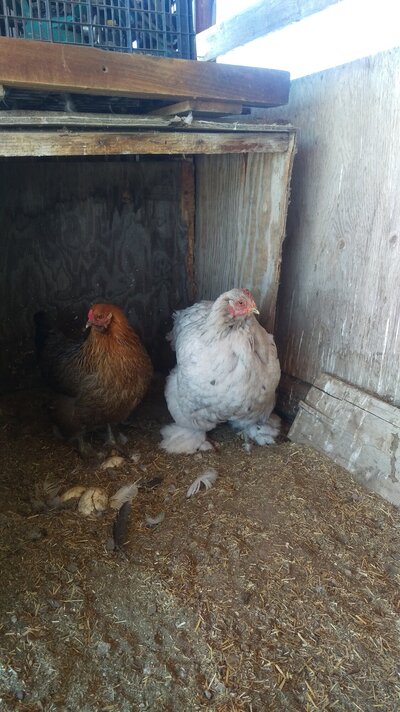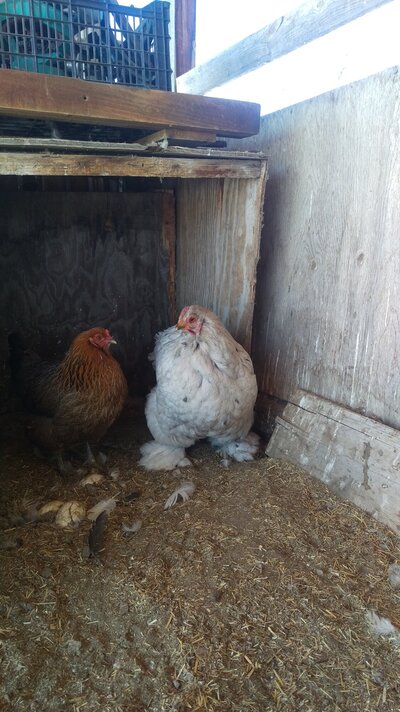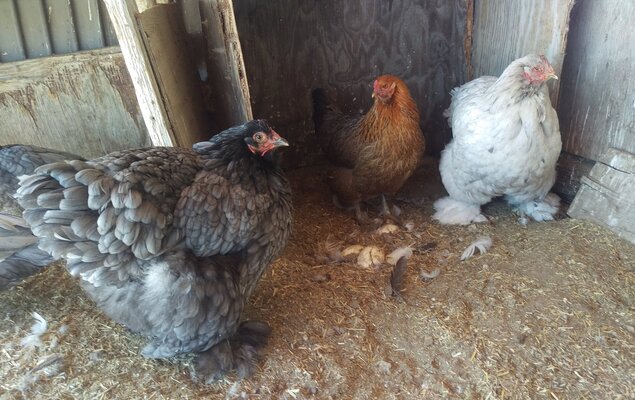- Dec 17, 2011
- 7,574
- 1,187
- 441
When feeding this morning, I noticed my 5yo blue cochin hanging on her perch. When I approached, she appeared blind and both her eyes were crusty. I gently picked her up and placed her onto the floor by the food. Within a minute, she wandered outside to her friends and began eating, so she obviously is not blind.
She was fine yesterday, and the rest of my flock are good this morning. Any ideas what could have caused this and what is the best way to clean her eyes?
She was fine yesterday, and the rest of my flock are good this morning. Any ideas what could have caused this and what is the best way to clean her eyes?






